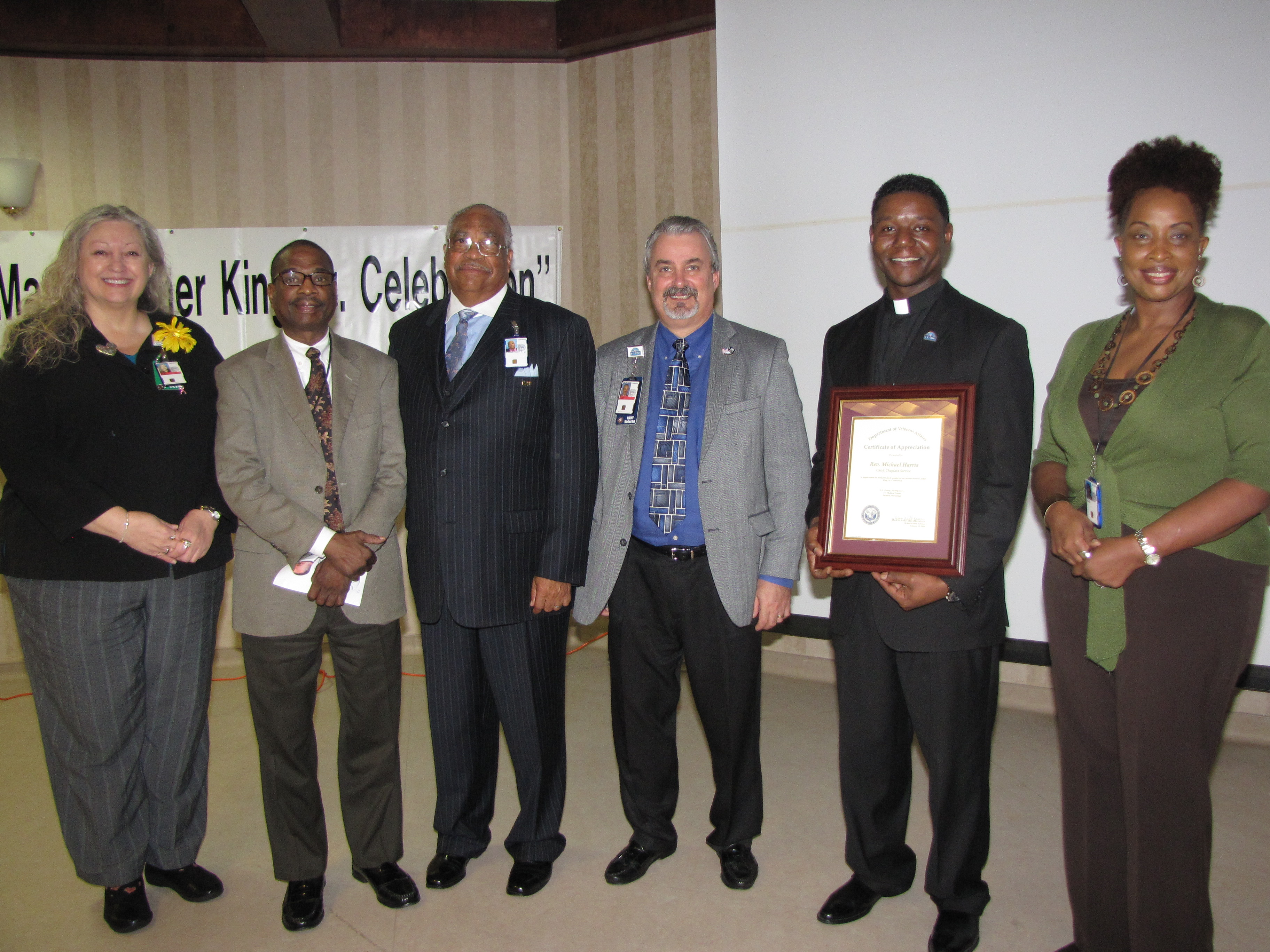
By Janice K. Neal-Vincent
Contributing Writer
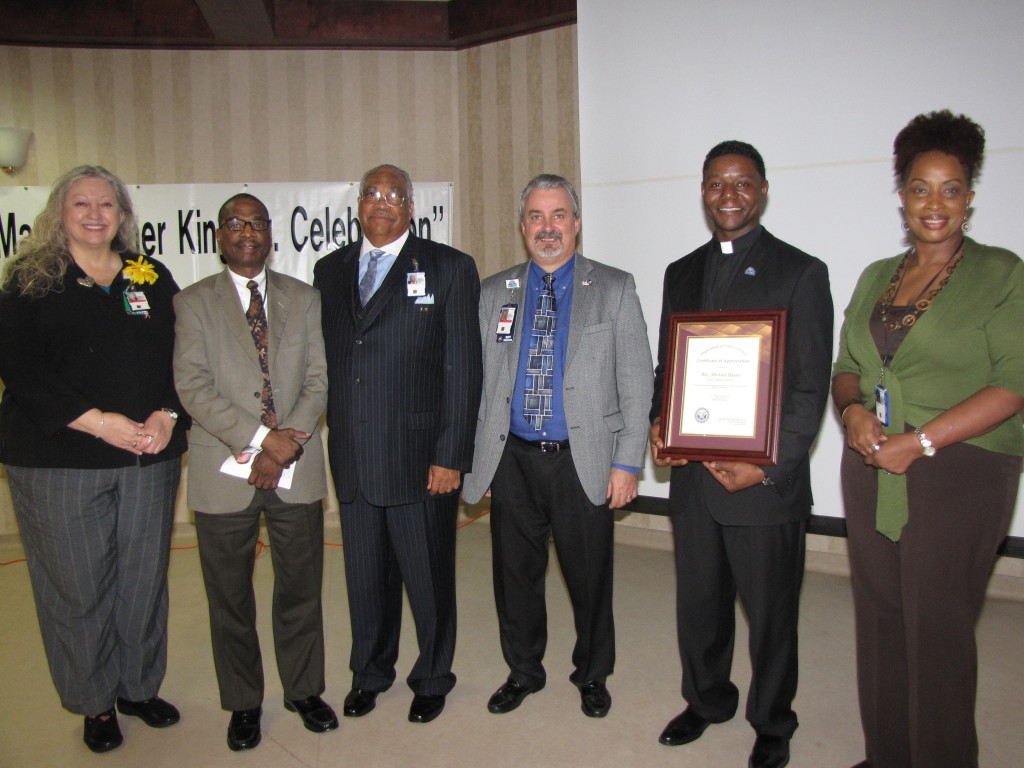
The city of Jackson’s G. V. (Sonny) Montgomery VA Medical Center presented its Annual Dr. Martin Luther King Jr. celebration in Montgomery Hall from 11 a.m. to noon Jan. 15.
Mistress of Ceremonies Jennifer Sayles set the stage when she shared that participators were ready to paint vivid pictures of King’s impact on the nation and the world at large.
MLK Committee chair Bernard Grant charged that despite differences, VA employees and audience attenders could attest to having learned from their experiences.
Recollecting that King often stated that it was human for persons to have disagreements, Grant claimed that the civil rights martyr frowned upon the behavior of persons who became disagreeable. Forging ahead, however, were human dignity, honesty, and integrity – the challenges Grant issued to his listeners.
Featured speaker, the Rev. Michael Harris, chief of Chaplain Services, noted that in his desire to serve God and people, King called for peace and chose to be a man of faith. “Bigotry,” said Harris, was what caused prejudice and injustice. “King believed, however, that to get back righteous, all society had to do was to go back to its core values of faith which is God, which is love,” said Harris.
The chaplain ordered listeners to “go back to the John Calvin’s, Martin Luther’s, and Charles Wesley’s, all who rested upon their core values.” Harris reminded the audience that core values were the foundation that held America accountable that everything is good. “Core values can spark a movement and give life – to redirect society,” the minister said.
Denoting that King’s legacy “is not limited to his 39 years,” Harris clearly stated that the martyr will be remembered far more for what he did than what he said. “His legacy is dependent upon the deeds and the living. Our character for the sake of dignity and kindness is called into question. So at the VA core values are our care. Integrity (tells us to) do the right thing. Commitment (tells us to) make a solid promise for the good of the group, the service we work in, the committee we serve upon, and the good of the veteran that deserves our best,” claimed the speaker.
Harris closed his address by first appealing to VA personnel “to ensure the relentlessness of our service to the veteran by seeing a person, not a preference, by treating him/her with the same honor we desire for ourselves, to aspire to live each day like we want to be remembered.” He then told the rest of the audience, “We owe it to ourselves to live for others, to face others with valor and dignity and reason to hold ourselves to the core values Dr. King applied.”
As she echoed Harris’ sentiments, Florine Young stood stilted behind the podium and read her poem, “Men of Valor.”
The MLK Committee summarized King’s core values that depicted him leading from 1955-56 a successful effort to desegregate Montgomery, Ala., founding and serving as the first president of the Southern Christian Leadership Conference in 1957, publishing in 1958 his book Stride Toward Freedom: The Montgomery Story, writing 1963 Letter from Birmingham Jail, delivering in 1963 his “I Have a Dream Speech,” winning the Nobel Peace Prize in 1964, organizing a mass march in 1965 from Selma to Montgomery, Ala. and in 1968, along with the SCLC, organizing the Poor People’s Campaign on economic justice.
The Martin Luther King Jr. Program Committee included Bernard A. Grant, chairperson; Evelyn Jackson, Alfrenett Johnson-Orr, Naysha Bethea, Robert Stringer, EEO Director; and Celeste Gaddis, EEO administrative assistant.

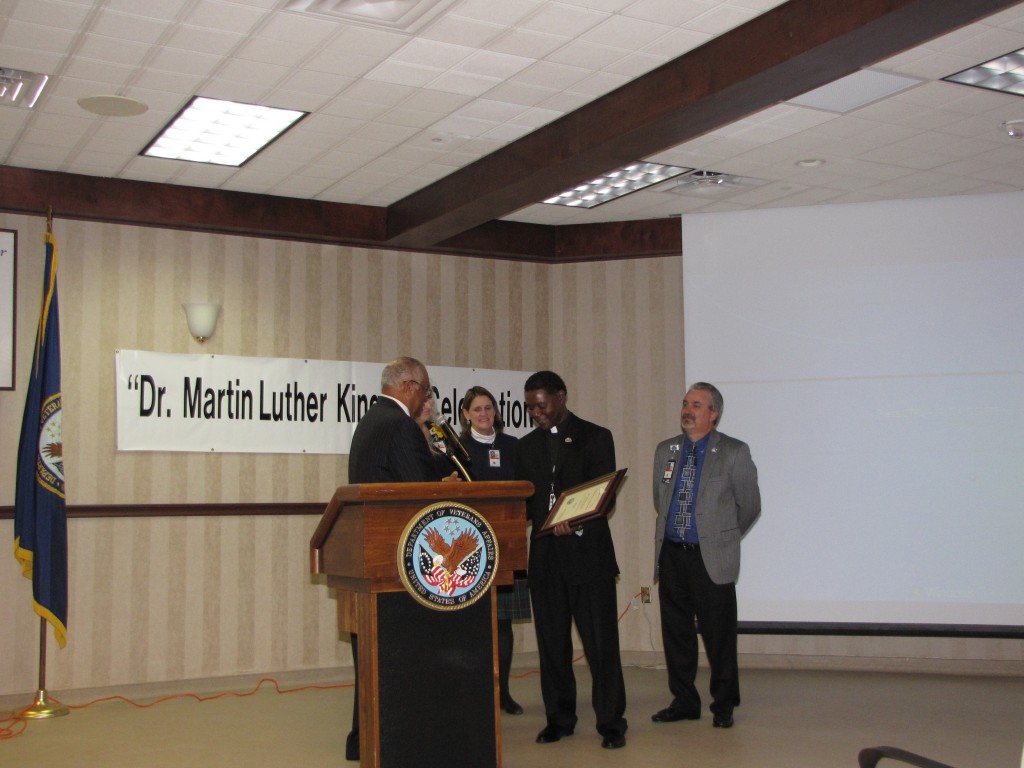
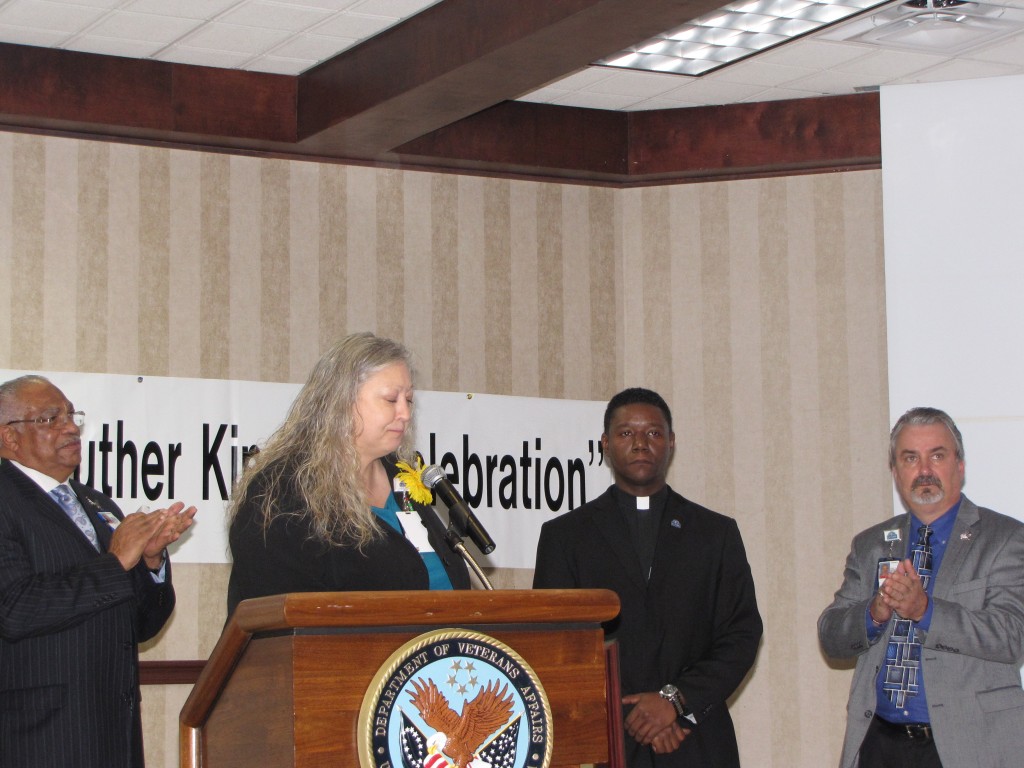
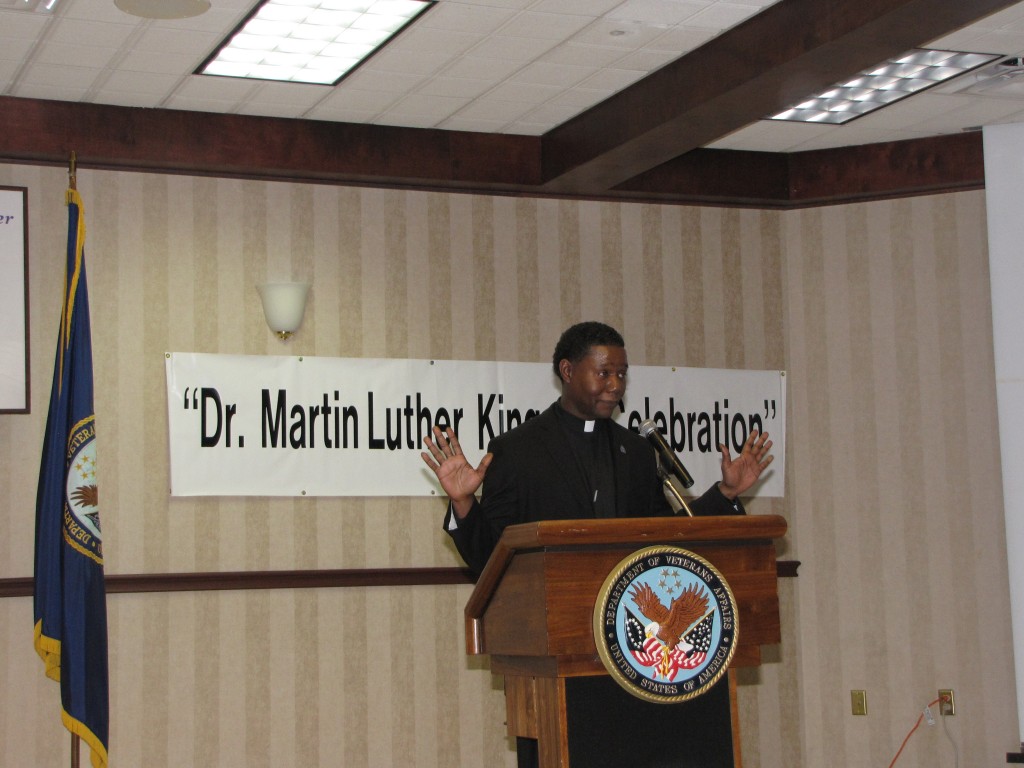
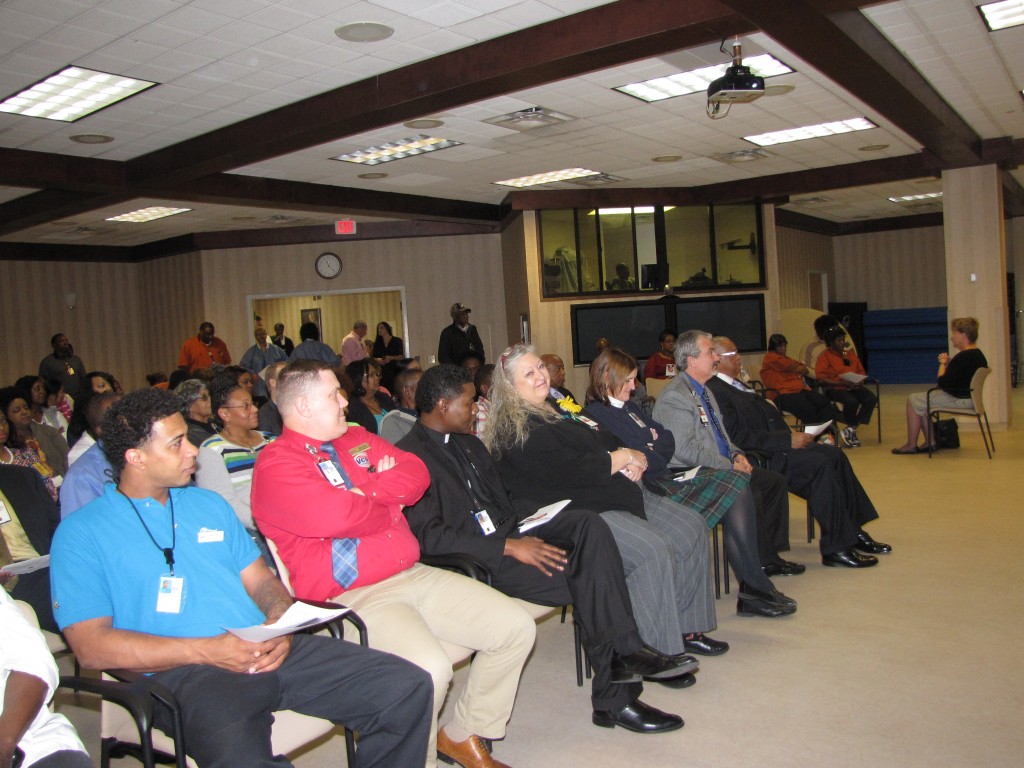
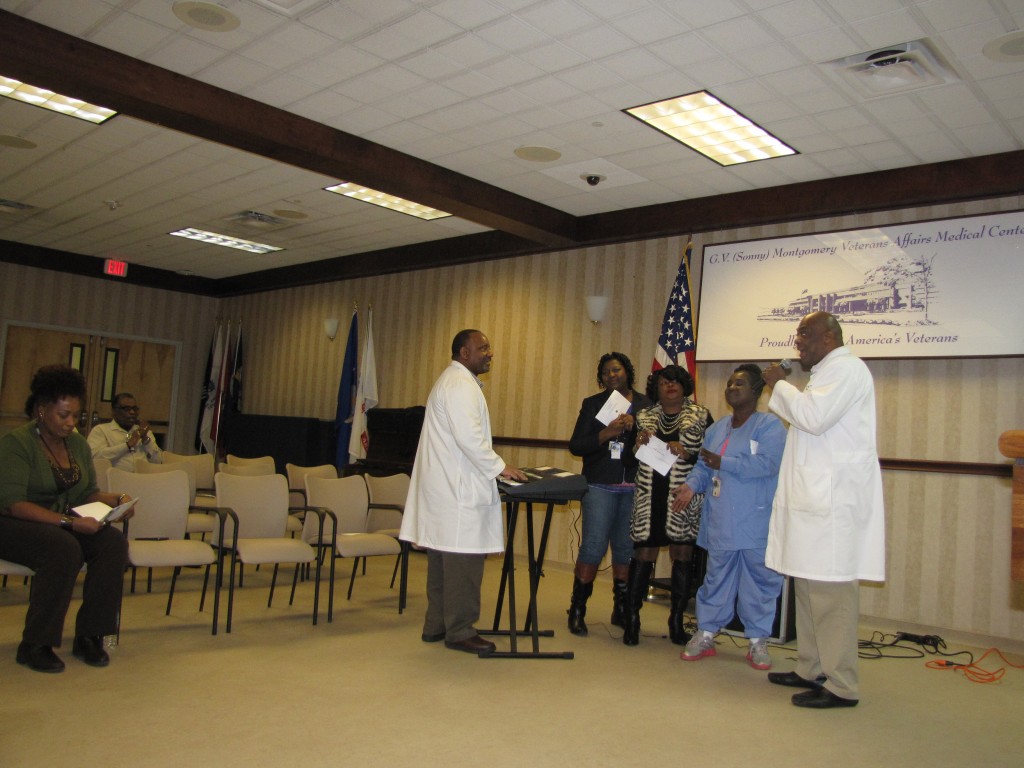
Be the first to comment